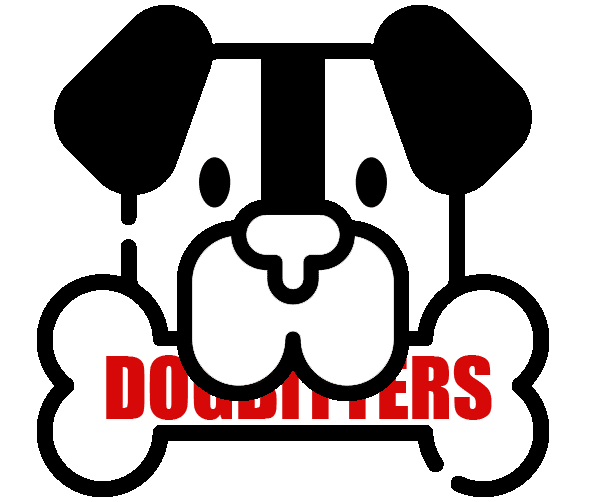Hunger in dogs is a serious problem that can affect the health and well-being of pets. Responsible owners are urged to pay close attention to signs that may indicate a lack of adequate food for their dog. Providing a balanced and nutritious diet is essential for maintaining the physical and mental health of pets.
This article aims to identify ten warning signs of hunger in dogs and provide practical advice on how to manage this situation.
CONTENT:
- The Importance of Paying Attention to Signs of Hunger in Dogs
- Ten Warning Signs of Hunger in Dogs
- How to Act on Hunger Signs
The Importance of Paying Attention to Signs of Hunger in Dogs
The importance of paying attention to the signs of hunger in dogs cannot be understated, as it has a direct impact on the health and general condition of the pet. A healthy and well-fed dog not only looks good, but also demonstrates active behavior and a cheerful attitude, clear signs of a balanced and energetic life.
Shiny fur is often considered a visual indicator of a dog’s health. A properly nourished animal will have a soft, shiny and dander-free coat, while a lack of nutrients can result in a dull and lackluster coat. Thus, observing any change in the quality of the fur may indicate the need for increased attention to the dog’s diet.
The contagious energy and cheerful presence of a healthy dog are direct consequences of a proper diet. Well-fed dogs are full of vitality, constantly eager to participate in activities and interact with their owners. On the other hand, starving dogs show a significant drop in energy levels, becoming listless and unenthusiastic.
When food resources become insufficient, the dog’s body reacts with a series of specific signs. Weight loss, changes in coat appearance, low energy levels and changes in eating behavior are all signs that the animal is not getting enough nutrients to maintain optimal health.
It is therefore the owner’s responsibility to be vigilant and identify these signs in time. Ignoring them can lead to serious consequences, including chronic health problems and decreased quality of life for the dog. By prompt intervention and dietary adjustment, the owner can help restore the pet’s health.

Ten Warning Signs of Hunger in Dogs
As a responsible owner, it is crucial to be connected to your dog’s nutritional needs to ensure a healthy and vibrant life. Observing the warning signs of hunger is essential to intervene in time and prevent possible health problems associated with lack of nutrients. Here are ten significant signs of possible hunger in dogs:
1. Unplanned Weight Loss
Weight loss without a clear explanation can be a sign of a lack of essential nutrients. Dogs that don’t get enough calories can start to lose weight, which can negatively affect their health.
2. Changes in Fur Appearance
A healthy, shiny coat reflects a balanced diet. Any change in coat quality, such as lack of shine or the presence of dandruff, can indicate nutritional deficiencies.
3. Low Energy Level
Starvation can cause your dog’s energy levels to drop. Lack of interest in play and activities can be a sign of energy depletion caused by a poor diet.
4. Aggressive Behavior or Apathy
The absence of the necessary food can affect the mood of the dog. The appearance of excessive aggression or, on the contrary, apathy can be an indicator of stress and discomfort related to hunger.
5. Excessive Water Consumption
Dogs experiencing hunger may try to compensate for the lack of calories by drinking too much water. Increased thirst may indicate an effort by the body to compensate for the lack of nutrients.
6. Changes in Eating Behavior
Changes in appetite, whether it’s hyper-selectivity or total loss of interest in food, should attract the owner’s attention. These changes can be clear signs of nutritional problems.
7. Digestive Problems
Diarrhea or constipation can be consequences of a digestive system affected by nutritional deficiencies. Digestive problems can affect a dog’s ability to properly absorb nutrients from food.
8. Abnormal Development of Bones or Muscles
Chronic hunger can disrupt the physical development of dogs, manifested by bone deformations or decrease in muscle mass. These changes can affect the animal’s mobility and comfort.
9. Dental or Gingival Problems
Poor diet can contribute to dental and gum problems. Noticing bleeding gums or difficulty chewing may indicate unmet nutritional needs.
10. Decreased Immunity
Starvation can weaken a dog’s immune system, making it more vulnerable to infection and disease. An increased frequency of disease can be a sign of a lack of essential nutrients.

How to Act on Hunger Signs
If you notice that your dog is exhibiting one or more of the warning signs of hunger, prompt intervention and consultation with a veterinarian is crucial to ensure his welfare and health.
Immediate Veterinarian Consultation:
The first and most important step is to schedule a consultation with your veterinarian as soon as you notice signs of hunger in your dog. The veterinarian will assess the animal’s general condition, perform tests and identify possible causes of the problem.
-
Accurate Diagnosis
The veterinarian will make an accurate diagnosis based on physical examination, medical history and, if necessary, blood tests. A correct diagnosis is essential to determine the exact causes of hunger and establish an appropriate treatment plan.
-
Diet Adjustment
Depending on the diagnosis, the veterinarian may recommend adjusting the dog’s diet. This may involve changing the type of food, adjusting portions or introducing additional foods to ensure balanced nutrition.
-
Nutritional supplements
To compensate for nutritional deficiencies, the veterinarian may recommend specific nutritional supplements. These may include vitamins, minerals or other essential substances to supplement the dog’s nutritional needs.
-
Additional Measures
In some cases, the veterinarian may recommend additional measures, such as treatment for dental problems, administration of medication to solve digestive problems, or other specific interventions depending on the identified cause of hunger.
-
Continuous Monitoring
After starting treatment, it is important to carefully monitor your dog’s progress. Constant communication with your veterinarian and regular appointments are essential to ensure that the treatment plan is effective and that the dog’s health is improving.
It is important to emphasize that the care and attention given to the dog in case of signs of hunger should not be limited only to the administration of the treatment prescribed by the veterinarian. A responsible owner should pay special attention to the pet’s nutritional needs and provide a balanced and nutritious diet on a regular basis.
Therefore, when faced with signs of hunger, working closely with your veterinarian and implementing an appropriate treatment plan is the best way to ensure your dog’s health and happiness.

